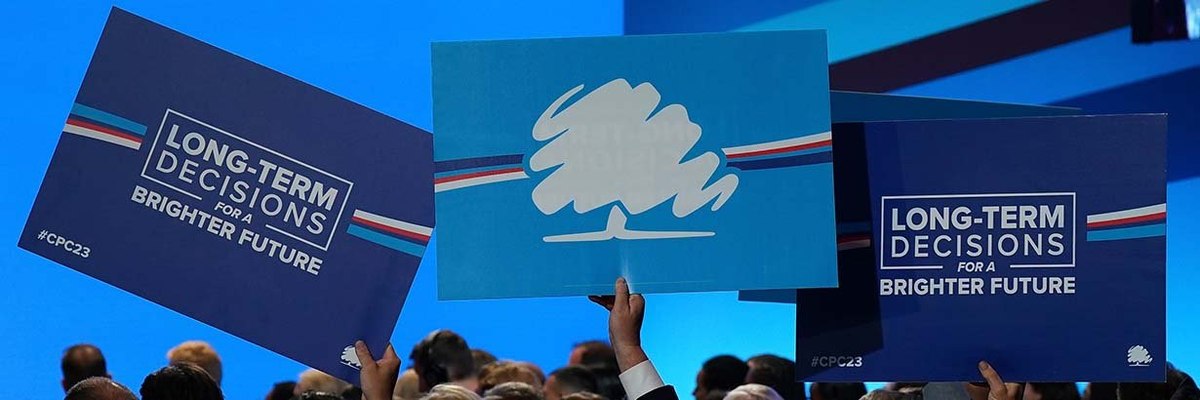While the Conservatives are holding on to just 40% of those who backed them in 2019, there is little sign that their undecided 2019 voters are ready to jump ship to Labour
Last week, YouGov data released on ITV Peston showed how the near quarter of 2019 Conservative voters who are currently telling us they “don’t know” who they would vote for if a general election were held tomorrow have a distinct socio-demographic profile: they tend to be female, around retirement age, homeowners (without mortgages), and are more prominent in the South of England.
Now, new YouGov data released this week on Sky News tell us another part of the story – what this most crucial set of voters think of Labour, the Conservatives, Keir Starmer, and Rishi Sunak, what issues they are concerned about, and how likely they are to vote for both parties.
The headline figures for the Conservatives make for troublesome reading; among their 2019 voter coalition, only four in ten (40%) are still planning to vote Conservative. One in eight (12%) are currently telling us they intend to vote for Reform UK, 11% say they will vote Labour, 7% would not vote, and 23% tell us they “don’t know” how they will vote.
If Labour were indeed to win over these one in nine Conservative voters, that would eclipse the proportion of Labour voters who Johnson managed to flip (around 8%), but would be fewer than the proportion of 1992 Conservative voters who Blair moved into Labour’s column in 1997 (around 16%). Labour under Starmer need something like a Blair-level performance at the next election to simply get back into government, let alone build a sizeable majority.
The fact that the uncertain group is twice the size of the group who have switched directly to Labour provides some light for the Conservatives as they seek to eat into a substantial Labour polling lead. If they were to be brought back into the fold, Labour’s polling lead would quickly evaporate.
But how likely is that? YouGov research from previous elections suggest “don’t know” voters generally return to their previous party. But are circumstances different this time around?
We asked 5,621 adults in England and Wales how likely or unlikely they were to vote for Labour, the Liberal Democrats, and the Conservatives at the next general election, on a scale of 0 (definitely not) to 10 (definitely will). Among uncertain 2019 Conservative voters, just 11% told us that they were actually actively considering voting for Labour (scoring their propensity to vote for them at a 6 or higher). Conversely, 28% said they were actively considering voting Conservative. One in eleven (9%) said the same of the Liberal Democrats.
Furthermore, uncertain 2019 Conservative voters have a far dimmer view of Starmer and Labour than they do Sunak or the Conservatives. We asked the public on a scale of 0 to 10, where 0 is "strongly dislike" and 10 is "strongly like", how much they liked or disliked each person or party. While Sunak posted a net positivity score (the % of those scoring him 6 or above minus the % scoring him 4 or below) of +7 among Tory 2019 voters who currently don’t know how they would vote, Starmer scored a distant -55. Similarly, among this key group, the Conservative party itself scored a net +7 while Labour scored -61.
Lastly, the “don’t know” tribe are much more likely to align with the sorts of issues that the Conservatives want to talk about. For instance, they prioritise immigration (56%) as one of their three ‘most important issues facing the country today’ to a much greater degree than those voters who have already made the jump to Labour (42%), and are much less concerned about about housing – one of Labour’s key policy areas – by 17% to 28%. On the economy, both groups prioritise this but switchers (67%) to a greater degree than those who remain uncertain (55%).
Taken altogether, this suggests that while the Conservatives are currently struggling immensely to hold their election-winning 2019 voter coalition together, Labour’s task in winning over those former Conservative voters who are currently undecided looks to be a significant one.
Photo: Getty









